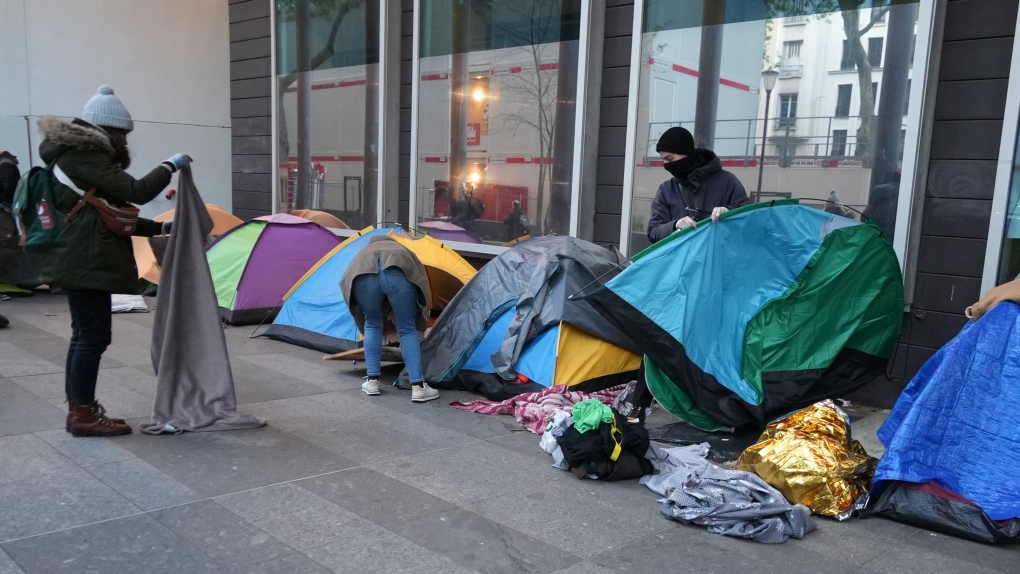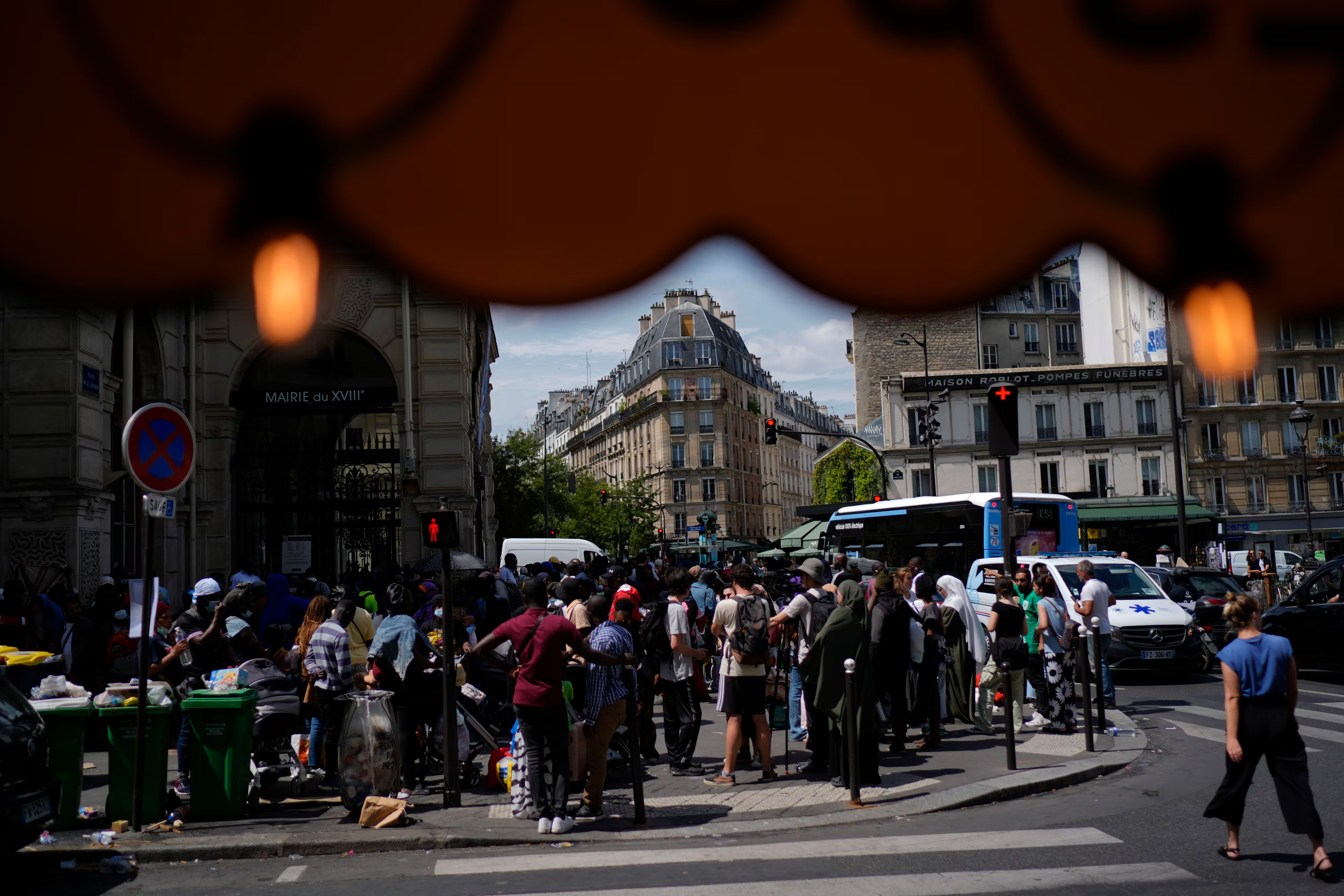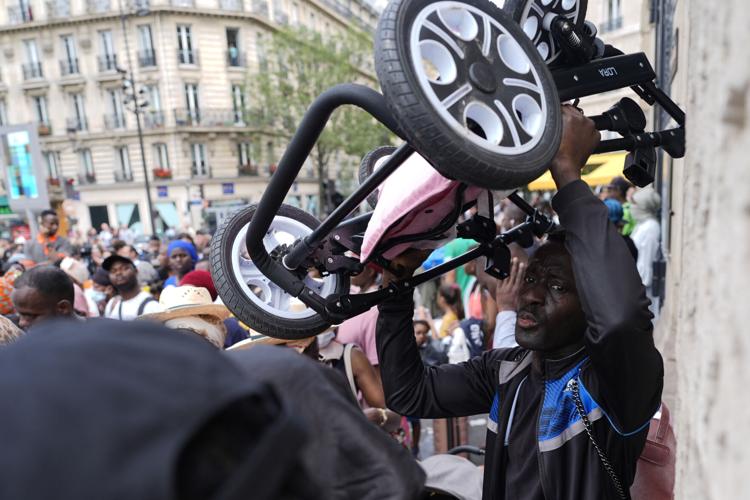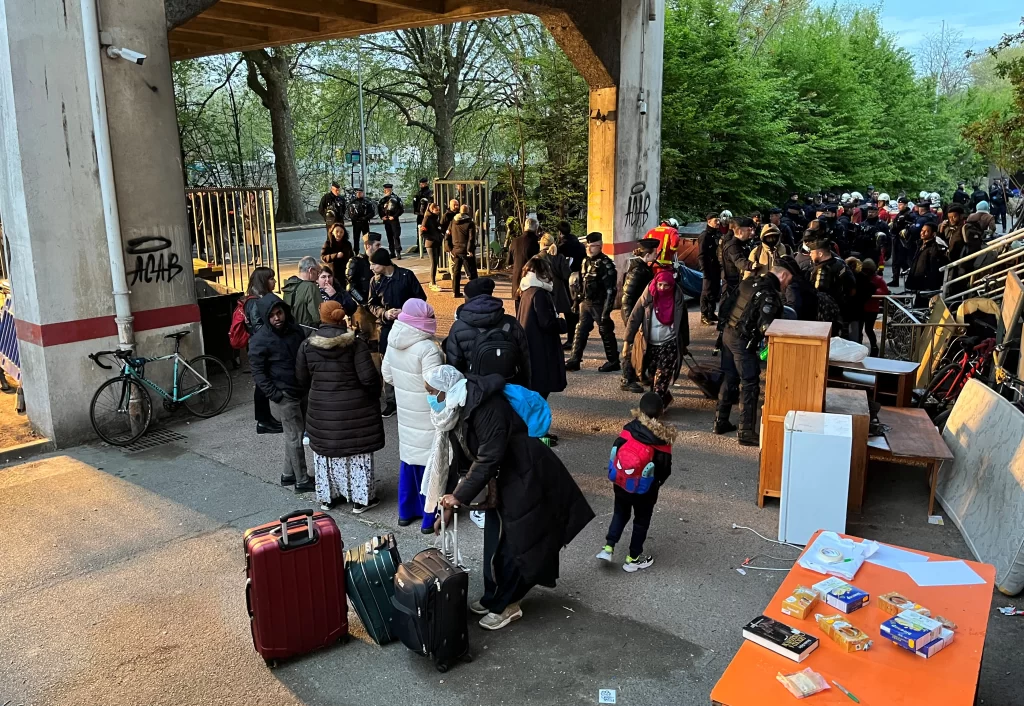As the world turns its gaze towards Paris for the 2024 Olympic Games, a contentious urban policy has come to the forefront, sparking debate and protest. On Thursday, hundreds of migrants and homeless individuals, many carrying backpacks and small children, were escorted onto buses by armed police, marking the latest wave in a series of relocations from the city center to its outskirts.

This mass movement, occurring just ahead of the Olympic opening ceremony, has ignited a fierce debate about the ethics of urban management during major international events. While French authorities frame these actions as part of ongoing efforts to provide shelter and support, critics denounce them as “social cleansing” aimed at presenting a sanitized version of Paris to the world.
The relocations have predominantly affected African migrants, many from former French colonies such as Burkina Faso, Guinea, Ivory Coast, and Senegal. Natacha Louise Gbetie, a 36-year-old migrant from Burkina Faso, exemplifies the human face of this policy. Once an accountant in her home country, Gbetie now struggles to find employment and housing in France, a situation she says has worsened in the lead-up to the Olympics.

“I think France is saturated. They’re tired of migrants, they want us to leave their country,” Gbetie expressed, holding her 1-year-old son, Richard, who, despite being born in France, faces an uncertain future.
The government, represented by Christophe Noël Du Payrat, chief of staff of the Île-de-France regional government, vehemently denies accusations of social cleansing. “We are taking care of them,” he asserted, emphasizing that the relocation of migrants has been a long-standing practice, not merely an Olympic-driven initiative.
However, activist groups like Utopia 56 paint a different picture. Nathan Lequeux, an organizer for the group, argues that the Olympics have intensified what he calls a “policy of hunting” against migrants and homeless individuals. They want to clean the city for the Olympic Games, for the tourists,” Lequeux stated, highlighting the perceived prioritization of image over human welfare.

The controversy has not gone unnoticed by Parisians and various associations. On the eve of the opening ceremony, a “Counter Opening Ceremony” was organized at Place de la République, a popular square for protests. Demonstrators unfurled banners with slogans like “The Games of Exclusion, 12,500 evicted” and “France, champion of bad housing,” drawing attention to the social cost of hosting the Olympics.
Noah Fargeon, a spokesman for the anti-Olympics group Saccage 2024, described the Paris Olympics as “a monstrous waste of public funds” and criticized the transformation of Paris into a “Disneyland for tourists.” He argued that resources are being diverted from addressing housing issues to repressing vulnerable populations.

The situation in Paris echoes similar controversies in past Olympic host cities, such as Rio de Janeiro in 2016, where comparable displacement policies were implemented. It raises broader questions about the social impact of mega-events and the balance between showcasing a city’s best face and maintaining social equity.
As the Olympics approach, the fate of those relocated remains uncertain. Many, like Nikki, a 47-year-old homeless Parisian, face an unpredictable future. “It’s like poker. I don’t know where I will go, or how much time I will stay,” she said, encapsulating the anxiety felt by many in her situation.
The Paris Olympics, while promising to be a spectacular global event, have inadvertently shone a spotlight on the complex social issues facing the city. As athletes and tourists flood into the French capital, the treatment of its most vulnerable residents continues to be a subject of intense debate and scrutiny.



